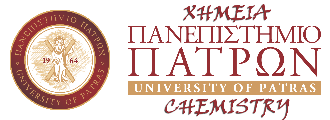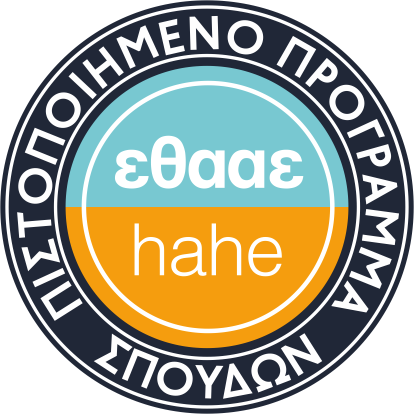Αγαπητοί χαίρετε,
Αύριο, Τρίτη 11 Μαΐου, ώρα 6:30 μμ, θα πραγματοποιηθεί τηλεδιάλεξη με θέμα:
“Artificial Intelligence in Drug Discovery: What is Realistic, What are Illusions?”
Προσκεκλημένος ομιλητής: Andreas Bender, Reader, Centre for Molecular Informatics, Department of Chemistry, University of Cambridge, Cambridge, UK
Η τηλεδιάλεξη πραγματοποιείται στο πλαίσιο του μεταπτυχιακού προγράμματος ‘Αναλυτική Χημεία & Νανοτεχνολογία’, καλύπτει διεπιστημονική ερευνητική δραστηριότητα και απευθύνεται σε ευρύ ακροατήριο.
Σύνδεσμος:
https://upatras-gr.zoom.us/j/96020984114?pwd=ZTJuaFRtdTRGOW9aaC9FbmJralZTUT09
Meeting ID: 960 2098 4114
Passcode: 254846
Ακολουθεί η περίληψη της διάλεξης και σύντομο βιογραφικό του ομιλητή.
Abstract: Artificial Intelligence (AI) has had a profound impact on areas such as image and speech recognition; however, comparable advances in drug discovery are still rare. This contribution will explore some of the reasons why this is the case, starting firstly by embedding the application of AI in drug discovery into its historical context. Next, we will explore which types of improvements – namely to speed, cost, or quality of decisions – are able to have the most profound impact on the success of drug discovery projects, and we will see that it is quality of decisions in clinical phases that matters most for project success. However, while computational algorithms are tremendously powerful today, much of the data we have available in drug discovery projects comes from the preclinical, proxy domain – which possesses only limited utility to make predictions for clinical stages. Hence, while numerically we are at least to an extent becoming better at modelling proxy endpoints, this leads to a ‘models of models’ situation, which only translates to a very limited extent to the safety and efficacy of compounds which will reach patients in a clinical setting. Even more fundamentally, there are intrinsic aspects of chemical and biological data which make labelling data much more difficult than in the image- or speech-domain, such as its conditionality (e.g. the dependence of effects on dose), which pose conceptual problems to being able to apply computational algorithms in the drug discovery domain. The contribution will conclude with aspects of model validation and perceptions of AI in society which pose additional problems for their unbiased evaluation and development, and point out developments which are needed for applications of AI in drug discovery to contribute to the clinical safety and efficacy of future medicines.
--Andreas Bender and Isidro Cortés-Ciriano. Artificial intelligence in drug discovery: what is realistic, what are illusions? Part 1: Ways to make an impact, and why we are not there yet. Drug Discovery Today, 2021 (26) 2, 511 – 524.
--Andreas Bender and Isidro Cortes-Ciriano. Artificial intelligence in drug discovery: what is realistic, what are illusions? Part 2: a discussion of chemical and biological data. Drug Discovery Today, 2021 (in press, DOI: 10.1016/j.drudis.2020.11.037).
Short CV: Dr Andreas Bender is Director for Digital Life Sciences at Nuvisan in Berlin, as well as a Reader for Molecular Informatics with the Centre for Molecular Science Informatics at the Department of Chemistry of the University of Cambridge. In his work, Andreas is involved with the integration and analysis of chemical and biological data from different sources, such as structural and bioactivity data, gene expression readouts, cellular imaging data, pathway information, etc. The computational analysis of this information is in his research then aimed at understanding phenotypic compound action – such as cellular readouts and organism-level effects – on a mechanistic level, predicting molecular properties related to both compound effiacy and toxicity, as well as e.g. compound repurposing. He received his PhD from the University of Cambridge and worked in the Lead Discovery Informatics group at Novartis in Cambridge/MA as well as at Leiden University in the Netherlands and at AstraZeneca before his current post.
Με εκτίμηση
Θεόδωρος Χριστόπουλος
Καθηγητής
Τμήμα Χημείας




